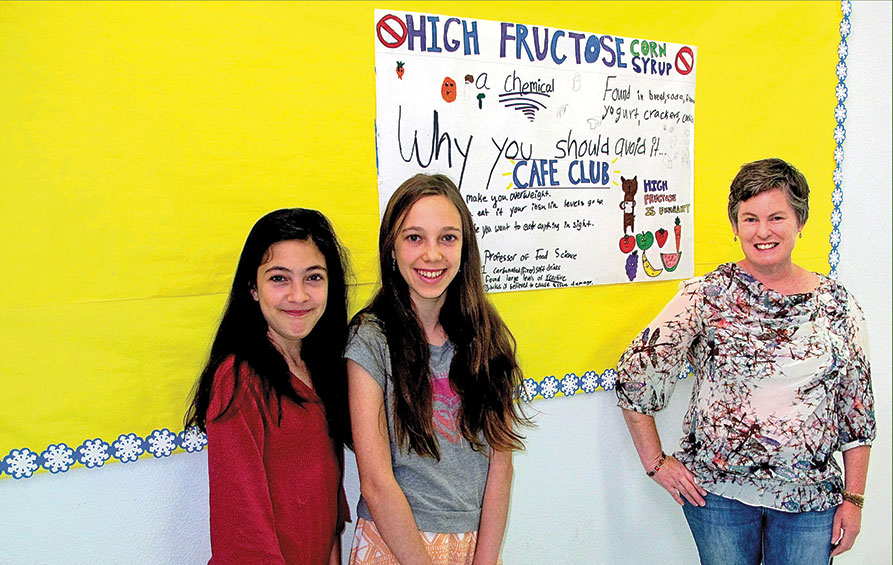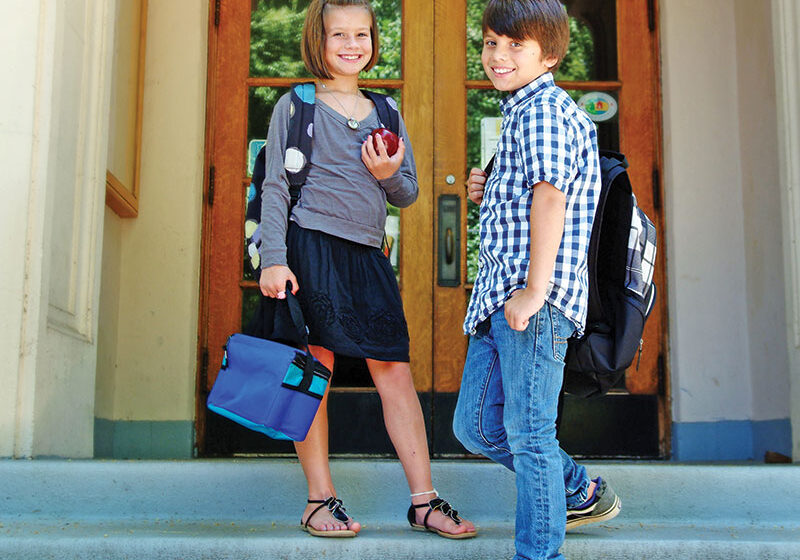 The site council for Sisson School in Mt. Shasta, CA, sends annual surveys to families to help maintain an excellent educational environment. Amid much positive feedback, responses have also included dissatisfaction with Sisson’s school lunches. Unfortunately, the lack of a commercial kitchen has crippled the district’s ability to enact much change in this area. Without a kitchen, the school has little choice but to contract meals from other locations, which means serving highly processed food that often offers less nutrition and flavor than families would prefer.
The site council for Sisson School in Mt. Shasta, CA, sends annual surveys to families to help maintain an excellent educational environment. Amid much positive feedback, responses have also included dissatisfaction with Sisson’s school lunches. Unfortunately, the lack of a commercial kitchen has crippled the district’s ability to enact much change in this area. Without a kitchen, the school has little choice but to contract meals from other locations, which means serving highly processed food that often offers less nutrition and flavor than families would prefer.
Maya Rawitch, an eighth-grade student during the 2016-17 school year, conducted a survey of her peers in which she found many students desire healthy, tasty school lunches. Bright, well-informed and passionate about health, Maya wrote and presented an essay about the situation to the board of directors of Mt. Shasta Union Elementary School District. Her thorough presentation motivated the board to create a superintendent’s committee to pursue a solution. Colleen Shelly, the mother of two Sisson students, joined Maya. These two, together with Maya’s sister Ella, several other parents, and two district board members, formed a team they named School CAFE (Culinary Action For Education). Sisson’s School CAFE joins two nationwide movements – School Food and Farm to School – that seek to address childhood obesity and health issues. School CAFE (http://www.schoolcafeclub.org) aims to provide “lunches that include fresh, additive-free, organic (when possible) and delicious food [that] will nourish our students’ bodies and minds.”
School CAFE’s solution to a healthier lunch tray? Build a commercial kitchen for Mount Shasta Union School District on the Sisson campus. Despite daunting up-front costs, Colleen says the project will save the district money in the long term and could, with proper management, even generate income.
“Right now, 30 – 35% of students order lunches, which costs the school about $55,000 a year out of the general fund, on top of the food budget,” Colleen explains. “With our own kitchen, we could serve meals that more students would want to buy, like a loaded salad bar with baked potatoes, soups, etc. which costs very little, but offers great nutrition and variety.” In addition to the financial benefits, having its own kitchen could make the district’s educational environment all the stronger; fresh breakfasts and lunches prepared at Sisson would also serve Mt. Shasta Elementary, helping fuel students’ brains for learning throughout the school day.
Of course, constructing a kitchen from the ground up doesn’t provide a quick fix. In fact, neither Maya, Ella nor Colleen’s eighth- or sixth-grade children will likely benefit from the undertaking. A professional contractor has estimated the project will cost about $500,000. But the team, and indeed the entire school, has committed to the cause. Maya and Ella, along with their grandmother, have raised awareness and begun laying the financial foundation. By passing out informational fliers and holding raffles at festivals and the Mt. Shasta Farmer’s Market, the girls have raised $1,200 since June 2017. “It’s really quite amazing what they’ve done already,” says Colleen, “Grant applications usually require a small fee, so these initial dollars are great seed money to keep this going.”
Several local agencies have also joined the cause. With Mount Shasta Bioregional Ecology Center as the group’s fiscal sponsor, money raised at fundraisers can be tax deductible. Great Northern Services and Jefferson Economic Development Institute (JEDI) have offered invaluable professional advice and information. The Ford Family Foundation has also been “an encouraging and resourceful advocate,” says Colleen, thankful for partners who “understand how important healthy kids are and that it’s our responsibility to provide them with the best foundation possible.”
The School CAFE Task Force has big dreams for Sisson’s kitchen. Phase One includes fundraising for and constructing the kitchen and, in the meantime, using the school gardens to expose students to planting, growing and composting their own food. School CAFE also could offer immediate improvements by providing healthy snacks during recess and lunch and coordinating Share Tables, where kids can swap items from their lunches to minimize waste. Phase Two will involve hiring a nutrition-trained chef and sourcing local ingredients. Phase Three will incorporate students in meal preparation on a daily basis. “Once we have a kitchen, the sky’s the limit,” says Colleen. “Empowering kids in the kitchen incorporates every school subject, and you get to eat your homework!”
Last year, Maya and Colleen coordinated an informal after-school cooking club, where kids learned how to make delicious, healthy snacks and read nutrition labels to avoid high levels of fat, sodium and added sugars. The club illustrates yet again School CAFE’s long-term vision. As Colleen says, “By learning now to select natural ingredients, these students can establish healthy cooking patterns that will lead to healthier long-term choices in the future.”
How can you help? Start by visiting http://www.schoolcafeclub.org to subscribe to School CAFE’s updates or email mtshastaschoolcafe@gmail.com.
Posted in: Education, Health & Nutrition
Comment Policy: All viewpoints are welcome, but comments should remain relevant. Personal attacks, profanity, and aggressive behavior are not allowed. No spam, advertising, or promoting of products/services. Please, only use your real name and limit the amount of links submitted in your comment.
You Might Also Like...

Pack Pain: Backpack Safety for Back to School
Kids everywhere will head back to class this fall with their own unique sense of fashion on display. Whether students sport a message tee, cargo shorts or a school uniform, […]

Inspire School of Arts and Science – Empowering Students To Discover Their Talents
Engaging with art is essential to the human experience. Almost as soon as motor skills are developed, children communicate through artistic expression. The arts challenge us with different points of […]

The First Back-To-School Journey
It’s August and back-to-school reminders are everywhere. Parents of preschoolers, this means your first back-to-school journey is about to begin. In the year before kindergarten, there are important steps you […]

Less is More With Healthy, Pure Ingredients at Sarah Major’s Simple Living Company
To ensure good health: eat lightly, breathe deeply, live moderately, cultivate cheerfulness, and maintain an interest in life. — William Londen This timeless advice embodies Sarah Major’s “less is more” […]




